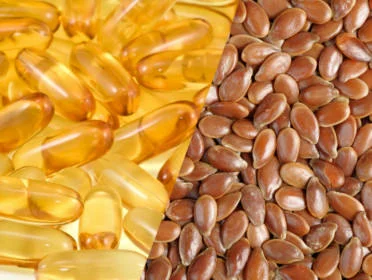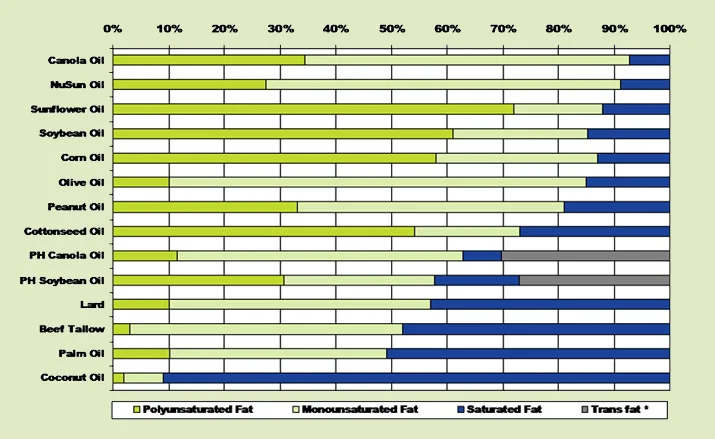Fats make you fat… the foundation of the nutritional advice over the last 50 years. Boy how they were wrong. An entire industry, founded on making low fat, “healthier” alternatives to already popular products, ironically causing an epidemic of obesity and type 2 diabetes. Marketing around health foods is hands down some of the most misleading propaganda being spewed in modern society. In my humble opinion, the misconception around dietary fat and its role in a healthy diet is the missing link to putting America back on track towards diminishing the wave of chronic disease that is plaguing the general public.
Do you even fish oil?
I always like to exemplify my points by referring back to my early foundations as I was trying to understand nutrition through bro-science and self-experimentation. I was the BIGGEST patsy when it came to the idea of “fats make you fat”. I was downing 3-4 Diet Cokes a day, eating low-fat Lean Cuisine macaroni and cheese microwave dinners, and exercising twice a day. Keep the calories low, exercise more than you eat… you'll lose weight, right? Well, kind of. In my opinion, this type of thinking is the basis for dietary and fitness failure in our culture. People tend to compare themselves to others and use that for justification of their poor dietary habits. “Oh, I heard that Karen doesn’t eat any fat, and lives off lemon juice and cayenne pepper and only does elliptical training for 4 hours a day …she's lost 10 lbs in a week!!!” (Every group has a Karen. No one likes you Karen.) First of all, there are so many things wrong with that statement it hurts, but the most blatant issue with this statement is the sheep mentality that is perpetuated in fitness culture. Bullshit dietary and fitness programs grow like weeds based on sheisty experiments paid for by supplement and food companies and the ever-popular word of mouth/bro-science. And let me get one thing straight, IT'S NOT YOUR FAULT that you fell victim to the bullshit - marketing agencies are paid millions of dollars a year to perpetuate false information to the public.
Before I start spouting off about the importance of fats and demonizing specific types of carbohydrate sources, I want to say one thing: there are 15 million different ways to achieve the same fitness goal. Everyone’s body chemistry reacts to different types of dietary protocols differently, so what works for one person may not work for another. The information regarding fats that follows is fundamental. From my personal experience and self experimentation, the changes I will be recommending in this article helped transform my body in ways I never thought possible. That being said, let's get on with it.
In the previous article, I outlined some basic ideology about fats and their role in a healthy diet. In this article, I will speak on unsaturated fats… i.e. Monounsaturated Fats and Polyunsaturated Fats. Those two classifications of fats make up a good percentage of healthy fats to be included in your diet.
Fish oil vs Flax seed
Structurally, MUFAs and PUFAs differ in where the carbon double bond occurs on the fatty acid chain. That information probably doesn’t mean much to you, but here is why you should care. Fatty acids that have no carbon double bonds (better known as saturated fatty acids) have a much higher melting and smoking point than fats with carbon double bonds. When unsaturated fatty acids are heated, it is much more likely that the fats will denature because of their less stable structure. So stop cooking at high heats with olive oil… you are doing more harm than good. Takeaway lesson regarding the structure of fatty acids: cook with saturated fats (butter, ghee, coconut oil) and make salads or LIGHTLY cook with unsaturated fats (olive oil, avocado oil, etc).
When it comes to balancing your intake of MUFAs and PUFAs, it becomes important to understand that many food choices are composed of both, in different ratios. Emphasizing MUFAs is always a safe strategy, while keeping your PUFA intake in check. Foods like avocados and olives are quality sources of MUFAs. Nuts are often placed in the category of healthy sources of MUFAs, but in my opinion, it’s a blind recommendation because of their poor PUFA profile. Polyunsaturated fatty acids are a close second to saturated fats in terms of being misunderstood by the public. People have been told for years that cooking with vegetable oils is a healthy choice, which in combination with the increased intake of processed foods, has skewed something called the Omega 3-6 ratio in the American Public’s diet.
Polyunsaturated fats can be subdivided into the following categories, Omega 3, 6 and 9. Omega 3 and 6 Fatty acids are essential, meaning that the body cannot manufacture it on its own. Omega 9s can be made within the body from other sources. Let's focus on the essential fatty acids and their effects on your health. Both Omega 3 and 6 Fatty acids have opposing effects on inflammation in the body - Omega 3 decreases inflammation while Omega 6 perpetuates it. Decreasing inflammation does wonders for your body, including disease prevention, healthy skin and drum roll… increased metabolic capability. Imagine altering the profile of fats in your diet with a few simple changes and enjoying a firing metabolism that can help you burn unwanted body fat while also warding off chronic illness. Eating a diet high in Omega 6 and low in Omega 3, aka the diet of the average American, is associated with increasing levels of cytokines, proteins released from cells that trigger inflammation. Take away message… when it comes to monitoring your intake of PUFAs, make sure that you pay close attention to the Omega 3:6 ratio that you are consuming. You should be shooting for a 1:4 ratio, although I recommend being an overachiever and going for the ever coveted 1:1 ratio. Your digestive system and overall inflammatory response within your body will thank you.
Stay away from PUFA heavy oils, don't cook with vegetable oils
Another nagging issue when it comes to PUFAs, specifically Omega 3 content, is the source from which the fatty acid comes from. The common misconception is centered around plant versus animal based sources of Omega 3 and their ability to be utilized by the human body. Fish is a very high quality source of Omega 3 fatty acids, specifically EPA (eicosapentanaenoic acid) and DHA (docosahexaenoic acid). Both of these fatty acids play a large role in overall health, including memory, skin, metabolism and body fat regulation. Where most people step in the wrong direction is believing that plant sources touted as “High in Omega 3” are just as beneficial. Plant based sources of Omega 3 are high in ALA (alpha-linolenic acid), which is not readily used in the body. Shockingly enough, the conversion rate of ALA to EPA and DHA is about 5% … meaning that your chia infused flax-walnut cluster fuck isn’t doing you the service that you think. Granted, those foods have plenty of other good qualities that I wont go into, but the bottom line is… plant based sources of Omega 3 are yet another clever marking ploy that the food companies dupe the general consumer into believing. You want to shoot for about 1-2 grams of Omega 3 Fatty Acids per day; scale your Omega 6 content accordingly.
As you can see, understanding the role of fats, specifically MUFAs and PUFAs can be more than just moderately complicated, so I'm going to highlight the take-aways from my rant:
- Dietary fats do not make you fat, it’s the quality of the source combined with your activity level and macronutrient makeup that will cause fat gain
- Stay away from cooking with PUFA heavy oils, you are better off cooking with saturated fats like coconut oil, grassfed butter, or ghee. DON’T COOK WITH VEGETABLE OILS (Extra virgin olive oil can be an exception here, but the heat must be VERY low)
- Emphasize MUFAs over PUFAs
- Processed foods are high in Omega 6 because most of them are made with cheap vegetable oils
- Keep your Omega 3:6 (PUFA) ratio somewhere between 1:4 and 1:1
- Not all sources of Omega 3 are created equal. Emphasize wild caught fish or fish oil capsules over plant-based sources of Omega 3 Fatty Acids
- Shoot for 1-2 grams of Omega 3 Fatty Acids per day. Scale your Omega 6 intake accordingly





